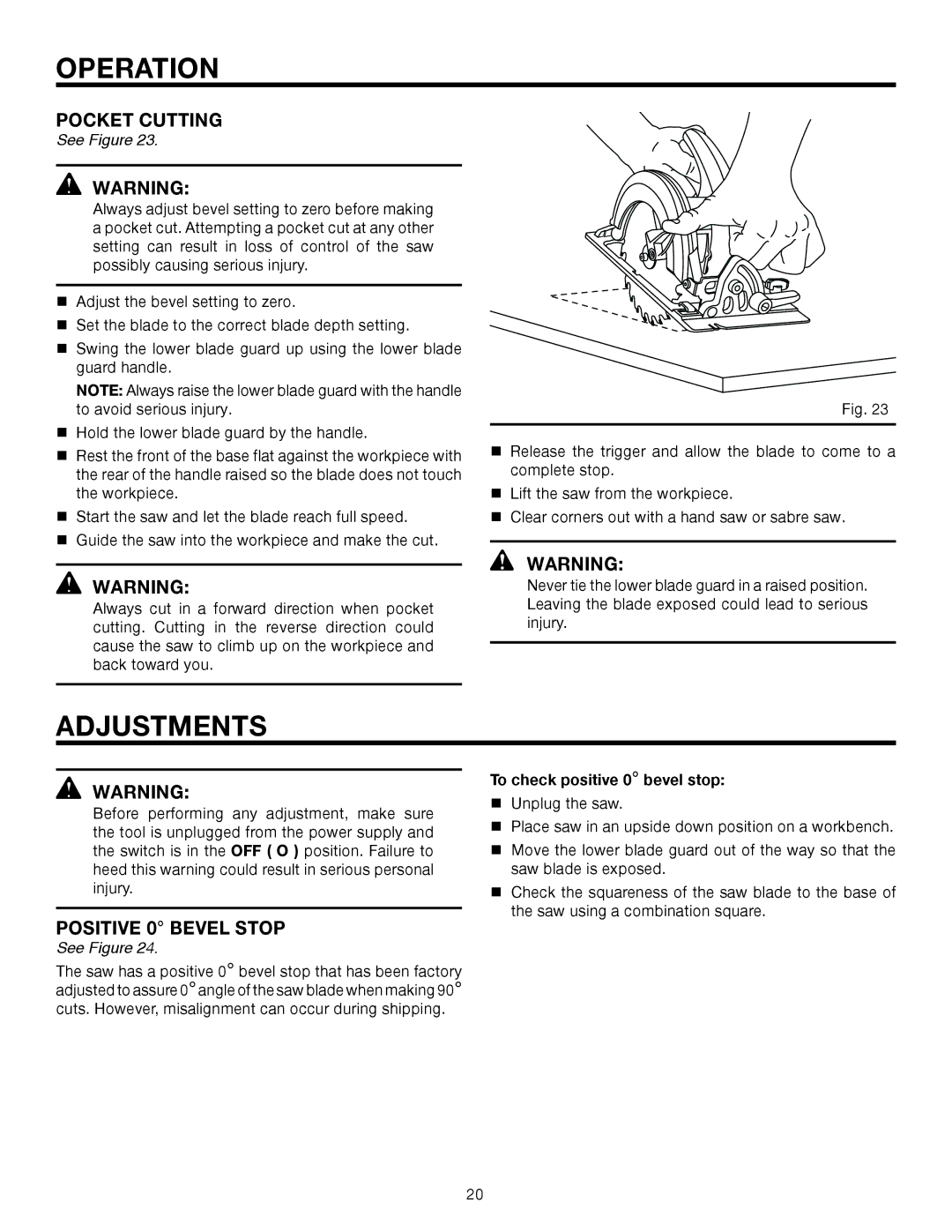
OPERATION
POCKET CUTTING
See Figure 23.
![]() WARNING:
WARNING:
Always adjust bevel setting to zero before making a pocket cut. Attempting a pocket cut at any other setting can result in loss of control of the saw possibly causing serious injury.
Adjust the bevel setting to zero.
Set the blade to the correct blade depth setting.
Swing the lower blade guard up using the lower blade guard handle.
NOTE: Always raise the lower blade guard with the handle to avoid serious injury.
Hold the lower blade guard by the handle.
Rest the front of the base flat against the workpiece with the rear of the handle raised so the blade does not touch the workpiece.
Start the saw and let the blade reach full speed.
Guide the saw into the workpiece and make the cut.
![]() WARNING:
WARNING:
Always cut in a forward direction when pocket cutting. Cutting in the reverse direction could cause the saw to climb up on the workpiece and back toward you.
Fig. 23
Release the trigger and allow the blade to come to a complete stop.
Lift the saw from the workpiece.
Clear corners out with a hand saw or sabre saw.
WARNING:
Never tie the lower blade guard in a raised position. Leaving the blade exposed could lead to serious injury.
ADJUSTMENTS
![]() WARNING:
WARNING:
Before performing any adjustment, make sure the tool is unplugged from the power supply and the switch is in the OFF ( O ) position. Failure to heed this warning could result in serious personal injury.
POSITIVE 0° BEVEL STOP
See Figure 24.
The saw has a positive 0° bevel stop that has been factory adjusted to assure 0°angle of the saw blade when making 90° cuts. However, misalignment can occur during shipping.
To check positive 0° bevel stop:
Unplug the saw.
Place saw in an upside down position on a workbench.
Move the lower blade guard out of the way so that the saw blade is exposed.
Check the squareness of the saw blade to the base of the saw using a combination square.
20
